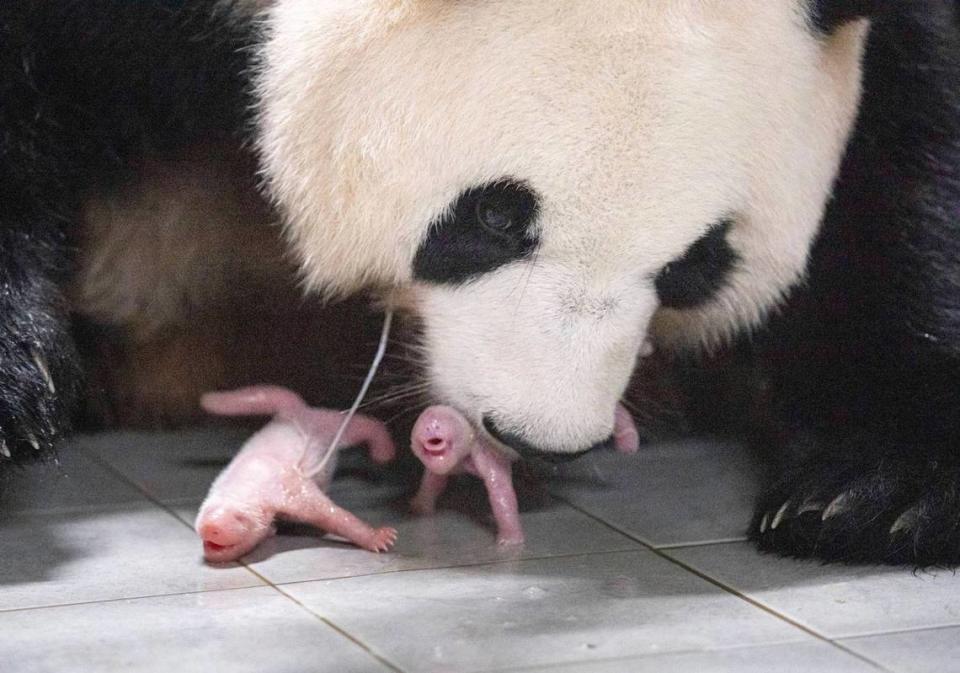Rare twin giant panda cubs born at South Korean zoo. See the tiny, squirming cubs
A giant panda in South Korea recently gave birth to twins, marking a historic moment for the East Asian country, officials said.
The tiny, pink cubs were born on July 7 at the Everland Resort theme park, located about 25 miles southeast of Seoul, the park said in a YouTube video announcing their arrival.
The video shows Aibao, the mother, delivering the first cub, whose entrance into the world was accompanied by piercing shrieks. Upon its birth, Aibao immediately scooped the newborn up into her mouth and licked it.
Minutes later, the second cub was born without complications, park officials said in the video.

The cubs — both females — are the first giant panda twins ever born in South Korea, officials said, according to the Associated Press.
Around half or less of pregnant pandas deliver twins, according to Reuters.
“This feels like a great opportunity to call for better protection and preservation of pandas, which have become a symbol for endangered species,” Donghee Chung, a park official, told the outlet.
Native to the forests of China, giant pandas are solitary creatures that almost exclusively consume bamboo, according to the World Wildlife Fund (WWF), a nonprofit dedicated to wildlife preservation.
Currently, there are less than 2,000 giant pandas living in the wild globally, according to the WWF, though their population is beginning to increase after years on the decline.
One of the main threats to their continued existence is habitat loss caused by infrastructure development, according to the organization. Pandas living in captivity, such as Aibao, can also prove incredibly difficult to breed, making births, particularly of twins, a welcome event.
Google Translate was used to translate the video posted by the South Korean park.
Rabid fox wouldn’t stop attacking woman — so she bit it back, Virginia cops say
Rare creature leaves photographer ‘speechless’ as it swims near Australian reef. See it
Creature found lurking ‘in disguise’ in waters off Australia. See the new species

